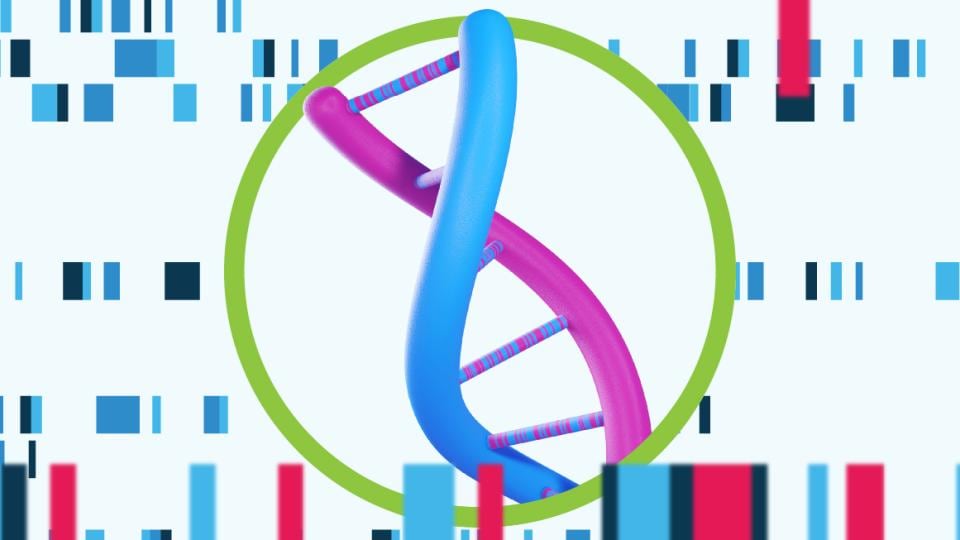There is No "I" in Cancer: How Collaboration Levels the Cancer Prevention and Treatment Playing Field

Much like an athletic team requires an all-in effort to win games and championships, the healthcare field requires the contributions of many different players to counter the often unpredictable and fast-moving attack of cancer and deliver better outcomes for patients and their families.
Cancer’s impact remains unchallenged, with the World Health Organization citing the disease as responsible for more than 10 million global deaths in 2020. However, as survival rates for many cancer variations continue to gradually increase and the team supporting them grows broader and stronger, patients (and those who care for them) have reason to feel optimistic.
Despite these notable gains, the battle is far from over, and no single individual or organization can beat cancer alone. Solid leadership, and the collective talents of a group of healthcare professionals, researchers, organizations and patients themselves (among others) are essential for gaining an advantage as cancer takes on new forms.
While their missions differ greatly, the all-in effort required to counter cancer is similar to that of successful soccer teams. A single player cannot win a game alone, and victory requires unity among the skills and strategies of the full 11 players on the field, and the coaches, trainers and fans who support them.
Just as there's no "I" in team, there's no "I" in the group working to defeat cancer. Here are just some of the key players that make up our roster.
Patients: Trusted and Inspirational Leaders
With a focus on scoring goals and electrifying crowds, strikers welcome the superstar role among their team. A constant part of the action, strikers are fast and nimble, and the individual teammates look for to surpass the defense and make game-altering plays.
Cancer patients can play a similar pivotal role, and lead and inspire their "teammates" through example. Patients often look for advice and support from others who have battled or are battling the condition and best relate to their circumstances, and can inform, motivate and uphold others going through a shared experience. The communal, "one locker room" feel of the cancer community makes it more important for those battling – or victorious against – cancer to share their stories and advocate both for themselves and for those at varying stages of the fight. Bayer provides such a forum through custom content where patients can detail their experiences.
National and International Medical Societies: Agile and Responsive Distributors
On the soccer field, midfielders are the glue that holds the offensive and defensive lines together and translate their awareness of what's going on across the entire field into reactive strategies – both for themselves and their teammates. Similarly, national and international medical societies, including the American Society of Clinical Oncology (ASCO) and European Society for Medical Oncology (ESMO), close gaps across the industry by ensuring even and accurate knowledge distribution among oncologists, researchers, screeners and patients. As a result, healthcare professionals can use this credibly-vetted information to improve their own cancer detection and prevention skills.
Bayer is working to strengthen the "midfield" of the cancer coalition by supporting the European Commission's Beat Cancer Plan and other broad multi-country initiatives. These programs assist comprehensive national care centers and priority efforts (such as screening) by making resources available to a wider network of physicians and patients and delivering a more effective and equal cancer response among the broader European society.
Healthcare Professionals and Patient Organizations: Dedicated and Unwavering Defenders
Just as a soccer defender counters the opposition's offensive charge with grit and determination, doctors, oncologists and patient organizations possess a similar dedication to keeping the disease in check. Through close collaboration with peers and researchers, this all-star healthcare team provides the recommendations and decision guidance that deliver better outcomes.
Even as experts of the field, healthcare professionals must continue to refine their craft and stay one step ahead of cancer's new – and continually evolving – offense. This includes finding new ways to build stronger patient connections and trust, and encouraging them to understand and share their symptoms, needs and the overall impact of cancer on their lives with their team of doctors. Through more direct and honest insights, these dedicated defenders can develop treatments tailored to specific patients.
Together, with the patient advocacy group Digestive Cancer Europe (DiCE), Bayer developed a playbook that helps individuals battling colorectal cancer understand their situation and verbalize their needs. From checklists that detail how cancer can change their quality of life to a pre-medical appointment questionnaire, the partnership and its content amplify medical teams' defense through open, honest dialogue.
Tailored Precision Oncology: Versatile and Reliable Protection
Just like in soccer, where goalies must adapt to protect the net, cancer's various kinds and progressive forms, targets and impact on patients require oncologists to evolve beyond a "one style fits all" care approach. Fortunately, advancements in diagnosis and a broader understanding of the disease have inspired better and more effective oncology therapy treatments tailored to individual patient and cancer characteristics – improving the likelihood of a positive treatment process.
Precision oncology is just one example of how Bayer is shifting the cancer care paradigm. Bayer and its partners are exploring tailored approaches to cancer testing, including collaborations with Foundation Medicine, Inc. to develop and commercialize next-generation sequencing-based (NGS) companion diagnostics tests for anti-cancer drug candidates and with Ventana/Roche, Tissue Diagnostics, Illumina and ArcherDX to develop similar kit-based diagnostics for NTRK gene fusion detection.
Data Scientists: Informed and Intelligent Strategists
A soccer team often is only as good as the coach and his team who translate game data – from statistics sheets and film of their own team and opponents – into strategies that maximize players' abilities. Similarly, the fight against cancer requires data to unlock new opportunities and place the key players in the cancer game in the most advantageous positions. With the reach and composition of cancer continuing to rapidly evolve, "big data" is one tool that researchers and oncologists can leverage to identify trends and mitigate patient challenges through more specific consultation and treatment.
As a member of the PIONEER consortium, Bayer and 32 key stakeholders collaborate to assemble, standardize, harmonize and analyze data from prostate cancer patients at varying stages. This expanded access to evidence-based information eliminates the guesswork from cancer research and provides stakeholders with the validation to pursue a specific treatment method. Beyond the lab, this consortium also strives to break data access barriers and encourage patients to securely and safely share their information to support current and future cancer care.
Individuals and Organizations Eager to Join the Fight against cancer: Vocal and Willing Pace-Changers
A 90-minute soccer game can feel exhausting, but for the teams that emerge victorious, there is no greater feeling of accomplishment.
While Bayer already has assembled a team of star researchers and organizations, the fight against cancer will require further collaboration and evolution. To elevate care and ensure the right treatment methods reach the right patients at the right time, we will continue to drive dialogue among the pharmaceutical industry, diagnostic companies, payers, academic institutions, health authorities, patient organizations and patients themselves.
Working together, we can capitalize on the rapid innovation possible through decades of scientific advancement and translate innovation into patient benefit. With a concerted, combined effort, we can give patients a better quality of life while changing the game for everyone cancer affects.




















